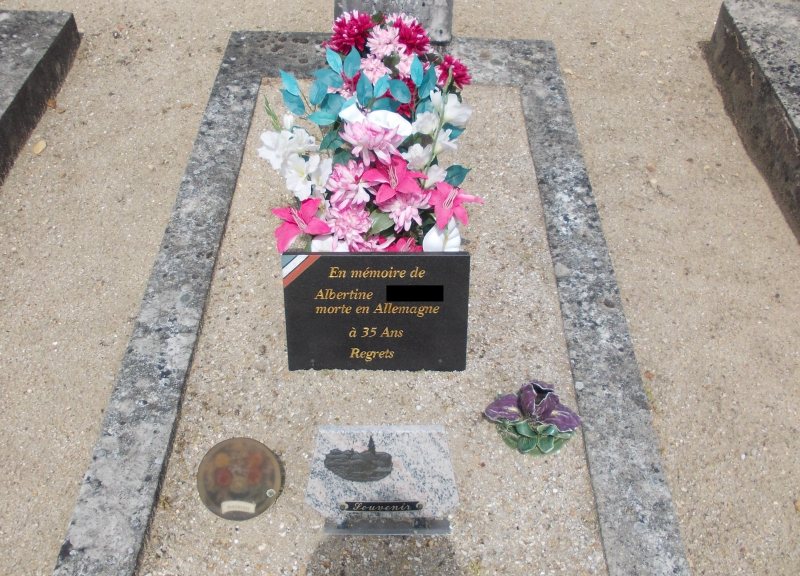(This post was supposed to go live on the 25th. However, LSS wanted to check some details first. Details have now been checked and verified, so here it is.)
We went to the village polling station again to vote in the EU elections. The turnout did not seem to be as impressive as it was when the local Mayoral elections were being held! Once again the French system appears to be particularly unkind to trees; each party (of which there were many!) has its own piece of paper. These are displayed in stacks on two trestle tables. One collects a piece of paper from each stack, and in the secrecy of the polling booth puts ones chosen piece of paper in the envelope. The unused pieces of paper are then simply thrown away. Of course in our case they were thrown away in the direction of the box containing fire-lighting materials.
The little bunnies are now eating solid food in addition to their accustomed diet; so we now need to pick grass, dandelions, clover etc. etc. several times a day. They’re also tucking in to kitchen vegetable scraps (the radish leaves, for example). Speaking of bunnies, here’s a rather chilling bunny-related tale:
Once upon a time, LSS had a First Cousin Twice Removed. (To save you looking it up in a genealogical textbook, this was her grandfather’s cousin). During the Second World War, France was of course occupied by the Germans. And one of the rules that the occupying forces imposed was that the possession of firearms was prohibited (for obvious reasons).
Now this First Cousin Twice Removed (we’ll call him Charles, because not only was that his name, but to keep referring to him as First Cousin Twice Removed would be silly) was a farmer. He would have been in his late thirties when the following events occurred. He was also particularly fond of wild rabbits. I don’t mean he went into the woods to admire the cute bunnies; he found them to be extremely tasty, especially when his wife Albertine made a casserole on the wood-burning kitchen range. As his skills at setting snares were not really up to scratch, he decided to ignore this apparently stupid law, and retained his shotgun.
All would have been well, had Charles not also had a fondness for a few glasses of lunchtime wine at the pavement tables of the village café. On this particular day he had arranged to meet his friend René, to catch up on some gossip.
The sunlight sparkled on the wine-glasses of the two men. An open packet of Gauloises cigarettes lay next to a half-empty bottle of red wine, which cast a ruby shadow on the surface of the stained circular table. The state of the ashtray indicated that the men had been there for some time; two empty wine-bottles had already been removed by the waiter. Deep in conversation, the two men paid scant attention to the other customers.
The sunlight also glittered on the silver-grey braid around the collar of Scharführer Günzel, seated at a table near the doorway. Although the local radar installation fell under the jurisdiction of the Luftwaffe, Scharführer Günzel had been seconded to this unit. He was ostensibly in charge of the security for the radar; but the real reason for his posting was to try and gather any intelligence available regarding the local French Resistance. (The nearby Maquis de Souesmes were giving the occupying forces a lot of trouble. The munitions factory in nearby Salbris was now under German control, and the four main sections of this factory were linked by a rail network; an easy target for sabotage.) The diamond-shaped patch on his sleeve bore the letters “SD” (Sicherheitsdienst); Scharführer Günzel was a non-commissioned officer in the SS. He had been selected for this particular task because he spoke fluent French, although as part of his cover he pretended not to understand more than a few basic words.
Meanwhile, the conversation between Charles and his friend was becoming interesting. René was complaining about the scarcity of the local game, and the recent difficulty in snaring rabbits. “I don’t have that problem!” boasted Charles. “I just use my shotgun. I’m not obeying any stupid Boche rules. My farm is miles away from the village, so nobody is any the wiser.” His friend kicked him under the table, indicating the German soldier drinking coffee at the table near the doorway. “Oh, don’t worry about him. He’s always here. He doesn’t speak French anyway. More wine?”
A few days later, Charles was not at home when a squad of German soldiers arrived to search for the illegal shotgun. But his wife was.
The children were somewhat puzzled to find their mother missing when they returned home from school. She was never seen again; she died in one of the camps. There is a simple plaque on her parents’ grave:

Postscript: When Charles died in 1985, his children refused to have him buried in the family plot; instead he is interred at the other end of the village cemetery.
